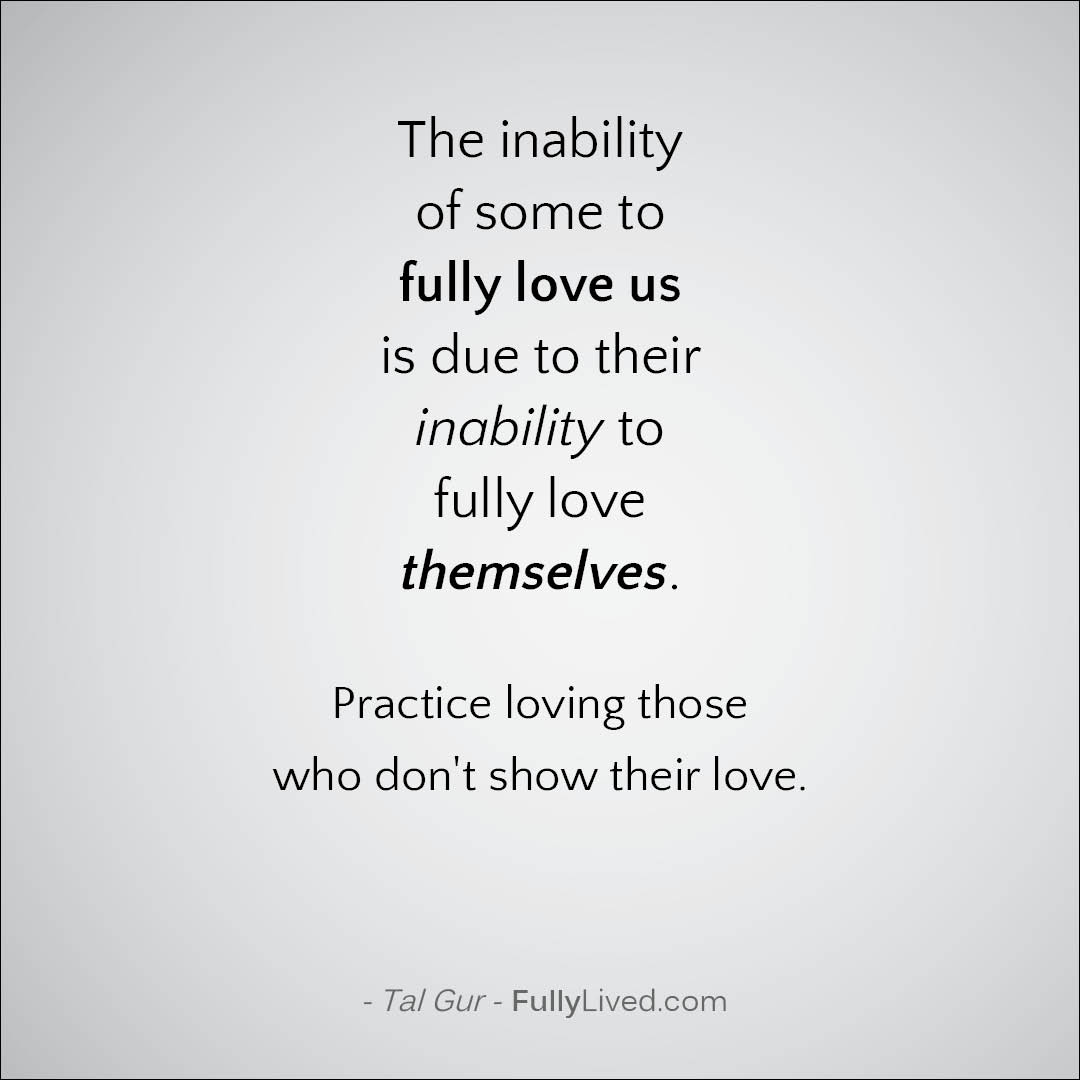The inability of some to fully love us is due to their inability to fully love themselves. Practice loving those who don’t show their love.
Have you ever found yourself pouring your heart out to someone, only to receive lukewarm affection in return? It's a bitter pill to swallow, isn't it? But before you drown in disappointment, let me shed some light on a profound truth encapsulated in these words.
Imagine love as a cup, brimming with warmth and affection. When someone can't seem to fill your cup with the love you crave, it's not because your cup is faulty. It's because theirs is running low. They're struggling to love themselves, let alone extend that love to others. It's like trying to pour from an empty pitcher—you can't give what you don't have.
This quote is a gentle reminder that the love we receive from others is often a reflection of the love they have for themselves. Think of it as a mirror: what they see within themselves is what they project onto others. So when someone's affection feels half-hearted or distant, it's not a reflection of your worth, but rather their own inner battles.
But here's where the real challenge lies: practicing love in the face of apparent indifference. It's easy to reciprocate love when it's freely given, but what about when it's scarce? That's where true compassion comes into play. It's about understanding that someone's inability to express love doesn't diminish their value or yours. It's a call to empathy, a recognition of shared humanity.
Picture yourself as a gardener tending to a wilting plant. Instead of cursing its lack of vitality, you nurture it with care and patience. You water it, give it sunlight, and offer it nutrients, knowing that its current state is not a reflection of its potential. In the same way, loving those who struggle to love themselves is like watering parched soil—it may take time, but it's a gesture of hope and faith in their capacity to bloom.
Moreover, by extending love to those who seem incapable of reciprocating, you break the cycle of self-doubt and insecurity. You become a beacon of light in their darkness, showing them that they are worthy of love, even if they can't see it themselves. It's a transformative act, both for them and for you, fostering growth and healing where there was once only emptiness.
Now, I'm not suggesting that you should martyr yourself in the name of love, constantly pouring into others without replenishing your own cup. Self-love is essential; it's the foundation upon which all other love is built. So while you practice compassion towards others, remember to save some of that love for yourself. Nurture your own garden, tend to your own needs, and recognize that you deserve just as much love and affection as anyone else.
In essence, this quote serves as a powerful reminder of the interconnectedness of love. It's not a finite resource to be hoarded or withheld, but a boundless wellspring that flows freely when nurtured and shared. So the next time you encounter someone who struggles to love you as you deserve, don't take it personally. Instead, offer them a piece of your own overflowing heart, knowing that love has the power to heal even the deepest wounds.
Actionable question: How can you practice self-love today, while also extending compassion to those who may struggle to love themselves?
* If you’re seeking extra motivation and inspiration on your journey of personal growth, I recommend taking a look at my SMART growth goals page, This page offers thousands of goal ideas that can assist in the establishment of new aspirations and the attainment of greater heights in one's life. In fact, it was instrumental in my creation of a list of 100 goals, which I pursued for a decade.
Chief Editor
 Tal Gur is an author, founder, and impact-driven entrepreneur at heart. After trading his daily grind for a life of his own daring design, he spent a decade pursuing 100 major life goals around the globe. His journey and most recent book, The Art of Fully Living, has led him to found Elevate Society.
Tal Gur is an author, founder, and impact-driven entrepreneur at heart. After trading his daily grind for a life of his own daring design, he spent a decade pursuing 100 major life goals around the globe. His journey and most recent book, The Art of Fully Living, has led him to found Elevate Society.





















